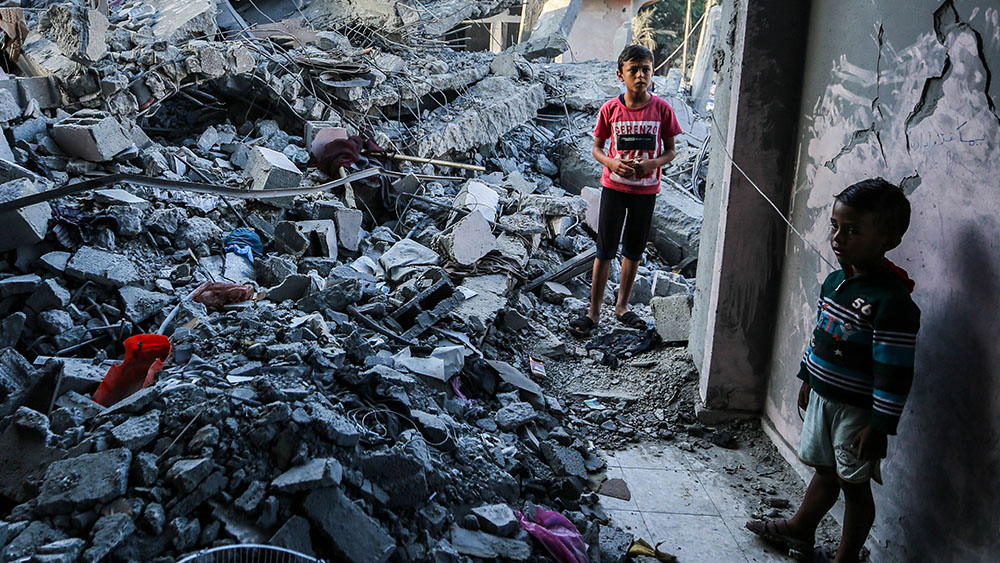
The Indian government announced that all non-basmati white rice will have to stay in India, this after rice prices had already climbed three percent in a single month. Heavy monsoon rains also caused significant damage to northern India's rice crops, we are told, which is why the government does not want the rice that remains to leave the country's borders.
This is really bad news for the rest of the world since India accounts for more than 40 percent of world rice exports. Low inventory with other exporters means that any drop in shipments has the potential to inflate food prices, which are already sky-high due to endless money printing and Wall Street corruption, which has been stripping fiat currency of its value for many years.
"In order to ensure adequate availability of non-basmati white rice in the Indian market and to allay the rise in prices in the domestic market, the government of India has amended the export policy," announced India's food ministry in a statement, adding that there has been an 11.5 percent increase in retail prices over the past year.
(Related: Be sure to check out the July 24, 2023, Brighteon Broadcast News report about the matter – you can also watch it below.)
India extends ban on wheat exports, caps sugar exports amid dropping yields
The category of rice impacted, which includes all non-basmati white and broken rice, accounted for roughly 10 million tons of the 22 million tons of rice that India exported around the world last year. The Indian government also clarified that parboiled rice, which represented 7.4 million tons of India's exports in 2022, is not included in the ban.
Keep in mind that just like the U.S., India has an important general election coming up next year. Prime Minister Narendra Modi appears to be making this move ahead of that vote in an effort to get ahead of inflation and convince more Indians to vote for him again.
In addition to the rice export ban, India also extended a ban on wheat exports that began last September when rice shipments were also being curbed. India's sugar exports are also being reduced as cane yield dropped, likely due to the same monsoons that destroyed much of India's rice crop.
"India would disrupt the global rice market with far greater velocity than Ukraine did in the wheat market with Russia's invasion," said B.V. Krishna Rao, president of the Rice Exporters Association.
Global rice prices nearing 11-year high – and things only seem to be getting worse and worse
More than three billion people around the world rely on rice as a food staple. Upwards of 90 percent of the water-intensive crop is produced in Asia, mainly in China and India, which are the two largest rice-producing nations.
Rice does so well throughout Asia because of the continent's unique positioning with regard to El Niño weather patterns. While the rest of the world gets higher-than-normal rainfall during El Niño, Asia usually gets lower rainfall.
Right now, global prices for rice are hovering at their highest levels in 11 years. The same is true for many other food items and consumer products, which are more expensive than ever thanks to private central banks like the Federal Reserve manipulating fiat currency for the benefit of the billionaire class.
"The sudden ban on exports would be very painful for the buyers, who can't replace the shipments from any other country," Rao added about the implications of India's rice export ban.
The countries to be most negatively impacted by the ban are those in Africa, Rao said, adding that Thailand and Vietnam also lack enough domestic inventories to fill in the shortage gap that is soon to come.
Other top buyers of Indian rice include Benin, Senegal, Ivory Coast, Togo, Guinea, Bangladesh, and Nepal. All of these countries and many others are expected to beg New Delhi to resume rice exports shipments straightaway to avoid creating a mass starvation situation.
Northern India was hit especially hard by the recent monsoons, which reportedly damaged many newly planted crops in states like Punjab and Haryana. Many farmers have had to replant their crops as rice paddy fields in these northern states have been submerged under water for more than a week.
Farmers with still-submerged fields will have to wait indefinitely for the waters to subside before they attempt to replant.
In other major rice-growing regions that were not hit by the rain, Paddy nurseries have been unable to transplant their seedlings because of inadequate rainfall.
While the overall rice-planting area in India was expected to increase after New Delhi raised the rice purchase price, the opposite has happened. Compared to 2022, Indian farmers have planted rice paddies on an area roughly six percent smaller.
Vietnam, the world's third-largest rice-producing country, is seeing the highest price for its rice exports in more than a decade.
"Vietnam's 5% broken rice was offered at $515-$525 per metric ton – its highest since 2011," Reuters reported about the situation. "India's 5% broken parboiled variety hovered near a five-year peak at $421-$428 per metric ton."
The latest news about the imploding global economy and declining food stocks due to bad weather and other factors can be found at Collapse.news.
Sources for this article include:
Please contact us for more information.






















